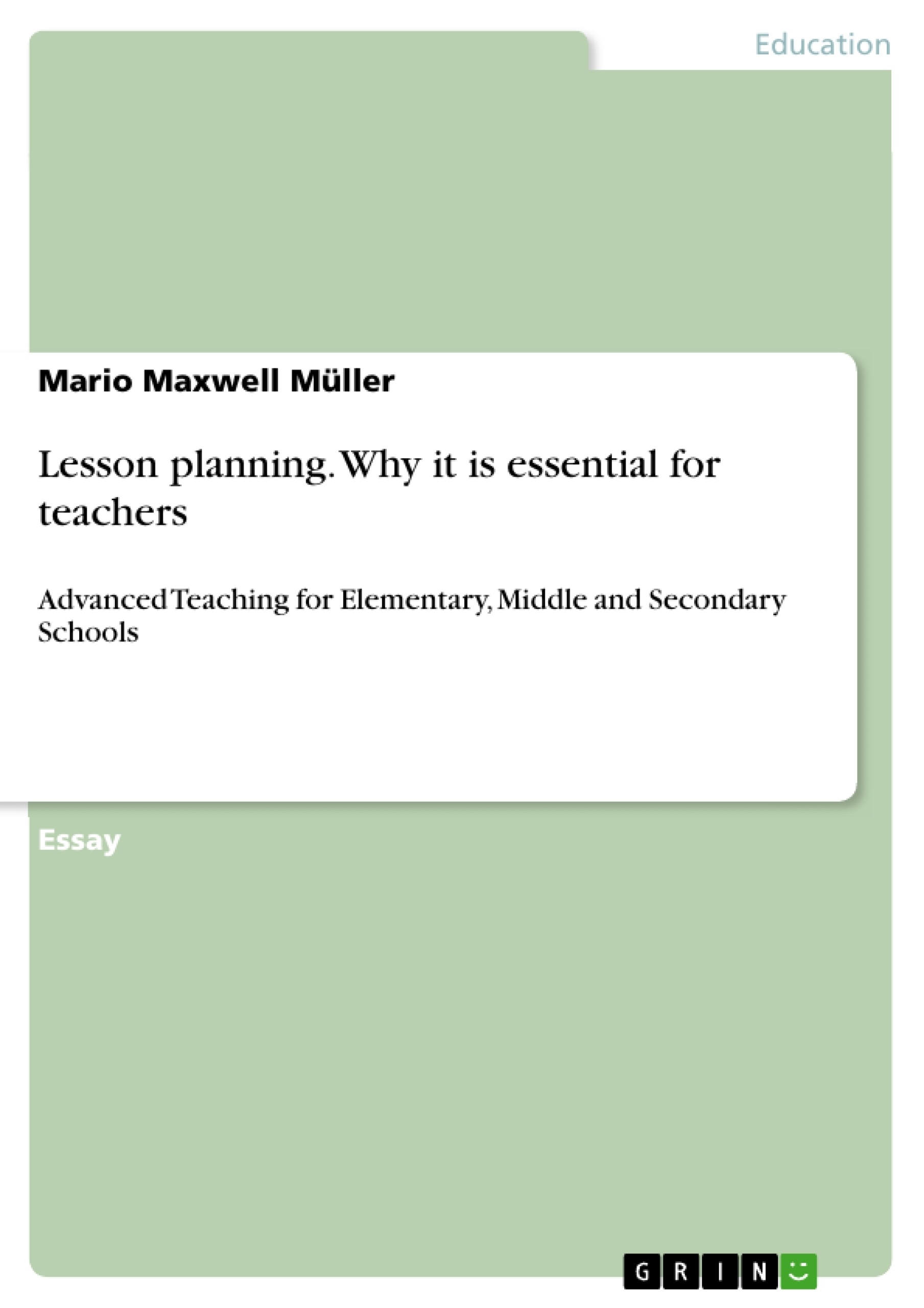The following essay will explain the importance of why teachers conduct lesson planning. When teachers create a unit or lesson by choosing activities and learning resources, that can be incorporated to benefit students' interests. In inquiry-based learning, as part of the International Baccalaureate programme, it is important to consider what instructional approaches to use. These will be greatly beneficial for students to achieve their outcomes, goals, objectives, and aims.
Table of Contents
- Abstract
- Introduction
- Lesson Planning Essentials
- Conclusion
Objectives and Key Themes
This essay aims to underscore the critical importance of lesson planning for teachers, emphasizing its role in student engagement and learning outcomes. The author explores practical strategies for effective lesson design and implementation within an inquiry-based learning framework, aligning with the International Baccalaureate program.
- The significance of lesson planning in stimulating student engagement and participation.
- Effective instructional approaches to cater to diverse learning styles and promote critical thinking.
- The role of reflection and feedback in refining lesson plans and meeting student needs.
- The importance of incorporating student interests and making lessons relevant.
- Collaboration among educators in enhancing lesson design and implementation.
Chapter Summaries
Abstract: This abstract briefly introduces the essay's focus on the importance of lesson planning for teachers and its connection to inquiry-based learning and the International Baccalaureate program. It highlights the essay's intention to explore instructional approaches that benefit student achievement of goals, objectives, and aims.
Introduction: This section establishes the central argument for the necessity of lesson planning in creating engaging and stimulating learning experiences. It emphasizes the importance of differentiated instruction, catering to various learning styles to ensure students internalize and apply learned concepts practically, improving literacy skills within the IB curriculum's framework of effective communication and principled learning. The introduction lays the groundwork for exploring key aspects of effective lesson planning.
Lesson Planning Essentials: This section delves into the practical aspects of lesson planning, outlining key considerations such as defining clear aims, objectives, and outcomes; creating opportunities for student thinking and discussion; pushing students' thinking; and incorporating reflection. It stresses the importance of aligning lessons with student interests, selecting purposeful activities, making lessons relevant, and collaborating with colleagues to refine lessons based on feedback. This chapter emphasizes the iterative nature of lesson planning and its importance in adapting to student needs.
Keywords
Lesson planning, instructional methods, inquiry-based learning, International Baccalaureate, student engagement, differentiated instruction, collaboration, reflection, feedback, learning outcomes.
Frequently Asked Questions: Comprehensive Language Preview
What is the main topic of this essay?
The essay focuses on the critical importance of lesson planning for teachers, particularly within an inquiry-based learning framework aligned with the International Baccalaureate (IB) program. It emphasizes the connection between effective lesson planning and improved student engagement, learning outcomes, and achievement of goals and objectives.
What are the key themes explored in the essay?
Key themes include the significance of lesson planning in stimulating student engagement; effective instructional approaches catering to diverse learning styles and promoting critical thinking; the role of reflection and feedback in refining lesson plans; incorporating student interests and relevance; and collaboration among educators in enhancing lesson design and implementation.
What aspects of lesson planning are discussed?
The essay delves into practical aspects of lesson planning, such as defining clear aims, objectives, and outcomes; creating opportunities for student thinking and discussion; incorporating reflection; aligning lessons with student interests; selecting purposeful activities; making lessons relevant; and collaborating with colleagues to refine lessons based on feedback. The iterative nature of lesson planning and its adaptation to student needs are also highlighted.
How does the essay relate to inquiry-based learning and the IB program?
The essay strongly connects effective lesson planning to the principles of inquiry-based learning and the framework of the International Baccalaureate program. It advocates for instructional approaches that promote active student participation, critical thinking, and the practical application of learned concepts, aligning with the IB's focus on effective communication and principled learning.
What are the overall goals of the essay?
The essay aims to underscore the crucial role of lesson planning in creating engaging and stimulating learning experiences. It seeks to provide practical strategies for effective lesson design and implementation that benefit student achievement of goals, objectives, and aims, while emphasizing the importance of differentiated instruction to cater to various learning styles and improve literacy skills.
What is included in the provided preview?
The preview is comprehensive and includes the title, table of contents, objectives and key themes, chapter summaries (abstract, introduction, lesson planning essentials, and conclusion), and keywords.
What are the key words associated with this essay?
Key words include: Lesson planning, instructional methods, inquiry-based learning, International Baccalaureate, student engagement, differentiated instruction, collaboration, reflection, feedback, learning outcomes.
- Quote paper
- Dr. Mario Maxwell Müller (Author), 2022, Lesson planning. Why it is essential for teachers, Munich, GRIN Verlag, https://www.grin.com/document/1297411




